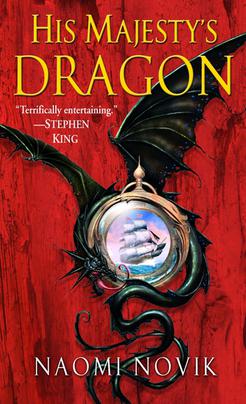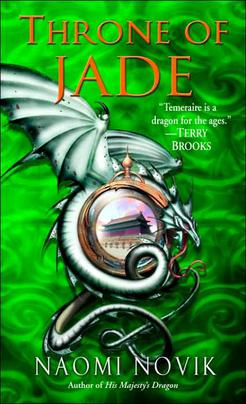I know it’s a little late to be jumping on The Game of Thrones hype train. The first season of the HBO series has come and gone, and the recent release of A Dance with Dragons has ended George R.R. Martin’s 5 year publishing drought. The wait wasn’t all that awful for me, seeing how I only started the series this last spring, and I had to fight a bit to finish A Feast for Crows (more on that below). But after having spent literally thousands of pages in the world of Westeros, I feel compelled to share a few observations about the series.
These covers are nice and all, but I prefer the solid colors and
simple imagery of the paperbacks.
As much as I love meta-level jokes and snarky self-awareness, it is extremely refreshing to read fantasy fiction that plays things straight. Yes, there is something of the post-modern in Martin’s multiple POVs, his willingness to kill off characters permanently, and his recent experiment with concurrent chronologies, but he never feels the need to gloat about how clever he’s being. Even though the plot is ponderous and labyrinthine, he lets his characters carry the tale. The pacing is slow at times. Glacial even, seeing how winter is just now arriving in Westeros even though the series is supposedly more than half over. But the political alliances are intriguing, intelligent and natural.
This is in large part thanks to Martin’s sparing use of magic. Even more than in Middle Earth, magic is a subtle and ugly force whose existence is doubtful and denied by most of the world. There is no established social class of wizards, no ostentatious fire and lightning based combat, and very little in the way of spell-casting rules for fans to analyze and play with. But there is magic. We’ve got an army of walking dead stalking the frozen north; a red sorceress who does some deeply disturbing things with fire, shadows and her vagina; dragons born from petrified eggs through dark and bloody rituals; and people who can psychically inhabit the bodies of animals. There is also the seasonal hook to consider: summers and winters last decades in the world of Westeros. But this later feature isn’t regarded as magick so much as an ugly, hard fact of life. All of Martin’s magick is rooted in physicality however, and even though the fantastic elements of the story escalate with every book, the world still feels credible and medieval.
Much has been made of Martin’s willingness to kill off major characters, but I think the best and cruelest aspect of his writing is his eagerness to maim, damage and otherwise irrevocably change his characters. Spoilers up to Storm of Swords follow, so those who have yet to read the books probably want to skip this paragraph. Still with me? Okay! Bran’s paralysis is the first and most obvious example. As he is presented at the beginning of the story, Bran is kind of bland and boring. He’s likeable enough to pass muster as the hero of a coming of age novel, but you’ve seen all that before elsewhere. After he suffers from a broken back that deprives him of his dreams of knighthood though, he becomes someone completely different. A character you have never encountered before in the epic fantasy tradition. Tyrion is another example. He starts out “damaged” by his dwarfhood and only gets more damaged as the series progresses. But the single most intriguing transformation in the series so far is when Jaime Lannister loses his sword hand. A man who has resolved everything with violence and cruelty is forced to walk a less impulsive, introspective path, and consequently, he goes from being a complete monster into a compelling and at times even likable character.
The series as a whole is superb, but it does have its high and low points. The first book, Game of Thrones, is great, introducing the central conspiracies and characters and moving things forward at a fairly rapid clip. It’s a good enough book to justify at least two sequels, and it establishes Martin as major force in Fantasy fiction. Does he live up to oft-marketed title of “The American Tolkien”? I would say “hell, yes!” but then again, I was never terribly taken with Tolkien. I respect the foundation he has laid, his poetical abilities and his masterful use of folklore, but I also had to struggle a bit to get through Middle Earth. Getting back on track, Clash of Kings, the second book in the Song of Ice and Fire, introduces more magic into Martin’s world, and for that I am willing to forgive it almost anything. That said, it does indulges in lots of plotting, politicking and characterization. Even though castles are sacked and people are displaced, I couldn’t shake the feeling that it was mostly a build-up book. Fortunately, all that set-up pays off in A Storm of Swords. It seems to reach it's climax in the middle, but things keep escalating with a string of death, betrayal and salvation.
This is the high point of the series in my opinion. You'll laugh, you'll cringe,
you'll feel like you're reading a much shorter novel.
As far as the TV series is concerned, it is the best adaptation of a long running fantasy series I have seen. Admittedly, that’s not saying much, seeing how the only thing I have to measure it against is Syfy’s awful adaptation of The Dresden Files, but for the most part, the series seems to be in the hands of people who actually care about it. Yes, the extra sex scenes are a bit ridiculous, seeing how the books have their fair share to begin with and the ramped up violence seems equally unnecessary. I imagine there is some sinister committee that has worked out a specific boobs and decapitation quota for each season to snag as many viewers as possible, but considering the books have their fair share of exploitive violence and sexuality already it leaves something of a foul aftertaste in the mouth. I’m willing to forgive them however because the quality of the plotting and dialog is preserved handsomely, and more importantly, 99% of the characters have been cast perfectly. My only complaints are superficial and ultimately sexist: Caitlyn seems a decade older than I imagined her, Cersei isn’t a jaw-dropping Helen of Troy-esque beauty, and Shay is less of a flirt than she is written in the books. So I guess I’m not much better than the sinister committee who is trying to shoehorn in as much extra sex as possible.
My only other gripe, and this is really picking nits, is that the armor and weaponry of the series do not live up to their printed counterparts. Martin’s descriptions of lamented plate mail, valyrian steel and sculpted pauldrons made me think of the ridiculously ostentatious armor sets in World of Warcraft. Admittedly, such things work better on pen and paper, (or in cartoonish polygons) than they do on screen, where actors actually have to wear the stuff and make themselves seem remotely credible while delivering their lines.
So is Game of Thrones for you? If you’re into dark fantasy, conniving politics and compelling characters, the answer is an emphatic yes. If not, I honestly don’t know what you’re doing with your life. As to whether you should read the books or watch the show, I would say both are worth your time, providing you have time enough to spare. If not however, this is one of those rare occasions where HBO’s offerings won’t lead you too far astray from the printed word. So watch the show or the buy the books, but don’t let yourself miss out on Martin’s masterpiece.











